Share
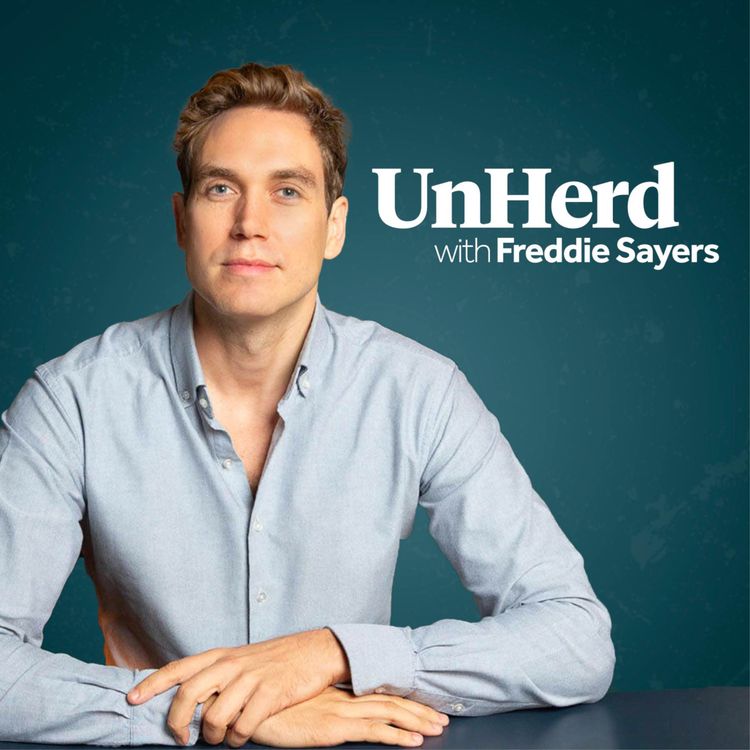
UnHerd with Freddie Sayers
Professor Ashok Swain: The strange disappearance of the anti-war movement
•
Joining UnHerd to talk about why so few voices in public life and the media have spoken out against the shipment of cluster bombs, and about the recession of anti-war sentiment more widely, is the academic and writer Ashok Swain. A professor of peace and conflict research at Uppsala University in Sweden, he is one of the world’s leading experts on conflict resolution. His nation of residence is now set to join Nato, and he sat down with Freddie Sayers to unpick how Sweden’s proposed membership goes against its history of neutrality.
More episodes
View all episodes
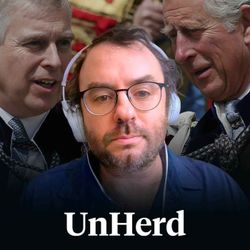
Michael Tracey: In defence of Prince Andrew
45:05|UnHerd's Freddie Sayers talks to journalist Michael Tracey about the arrest of Andrew Mountbatten-Windsor and what Tracey describes as a "moral panic" surrounding the Epstein scandal. Tracey challenges the mainstream narrative, arguing that the case against the former Prince relies on fictionalised accounts and inconsistent testimony from the late Virginia Giuffre, and by examining recently surfaced FBI memos and the charges of misconduct in public office, suggests that the current constitutional crisis is driven more by mass hysteria and media credulity than by unassailable legal evidence.
Anton Jäger: The Far-Right's route to victory
01:03:25|UnHerd’s Jonny Ball meets historian, academic, and author Anton Jäger to discuss his new book ‘Hyperpolitics: Extreme Politicization without Political Consequences’, charting the pronounced shift in engagement and death of political institutions since the 1980s via analysis of movements like Brexit, BLM, and the rise of the far-Right.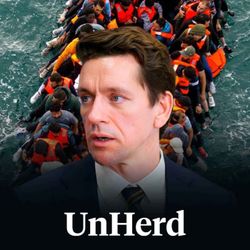
Danish minister: Here's how we controlled immigration
20:39|UnHerd’s Freddie Sayers meets with former Danish Minister for Immigration and Integration, Kaare Dybvad Bek – fresh from his high-profile talk at the Policy Exchange - to explore how his centre-Left Social Democrats party successfully implemented hardline immigration policies to reduce asylum applications to their lowest in 40 years. He argues that by curbing uncontrolled migration, the Danish government has effectively neutralised the populist far-Right and maintained public trust in the welfare state, offering a blueprint for other European leaders - including Keir Starmer - on how to manage borders from a progressive, pro-labour perspective.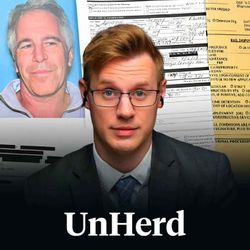
Robby Soave on 'Epstein Derangement Syndrome'
32:10|UnHerd's Freddie Sayers talks with senior editor at Reason, Robby Soave, about the long-awaited release of the Epstein Files and the fallout following the disclosure. Has the dump of millions of unverified documents sparked a modern-day witch hunt, where gossip is mistaken for evidence and guilt by association replaces due process? They explore how both ends of the political spectrum have weaponised the files to smear opponents, the high cost of sacrificing privacy, and why the lone “no” vote in Congress may have been the most prescient voice of all.
Can Reform win in Manchester?
54:35|UnHerd’s Freddie Sayers explores the upcoming high-stakes by-election of Gorton and Denton with a deep dive into the constituency and its localised microcosm of global populist trends. He is joined by Professor of Political Science at the University of Manchester, Rob Ford, founder and editor of the Manchester Mill, Joshi Herrmann, and councillors Allan Hopwood (Reform) and Shahbaz Sarwar (Workers Party) to analyse whether the Labour stronghold will crumble under pressure from a surging Green Party or a high-profile Reform UK campaign led by Matt Goodwin within a new landscape of sectarian identity politics and deepening public frustration with the UK’s traditional two-party system.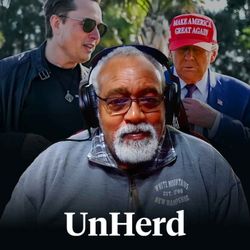
Glenn Loury: Elon Musk’s apartheid politics
26:31|UnHerd's Freddie Sayers talks to eminent economist and social scientist Professor Glenn Loury about a troubling new shift in American discourse: the rise of Right-wing identity politics. Traditionally a critic of the woke Left, Loury turns his sights on the world’s wealthiest man, arguing that Elon Musk is making a "category mistake" by importing South African racial anxieties into the American context. By embracing white solidarity and racial essentialism, Loury argues, the Right is not defeating identity politics, but is instead adopting a politically destructive mirror image of the very ideology they claim to oppose.
John Bew: The Davos world is over
50:41|In this exclusive interview, UnHerd’s Freddie Sayers speaks with Professor John Bew - leading historian and chief foreign policy advisor to the last four UK Prime Ministers – about the friction caused by the Trump administration's push to acquire Greenland and the resulting panic within the Western alliance. Set against the backdrop of the 2026 Davos summit, the conversation confronts the 'break glass' moment facing Western leaders and explores the uncomfortable reality of our current era: Will the UK shift from economic dependency toward restoring its own national power to navigate a scary new era of ‘bully powers’? Is the Western alliance truly over, or can a nuanced and multi-layered approach preserve the core security frameworks that have defined the last 80 years? How should middle powers respond when the United States - the traditional guarantor of global norms - begins to operate under a pre-1945 logic of annexation and unilateral tariffs? And could a new Northern European alliance provide the necessary leverage to protect sovereign interests in an increasingly bipolar world?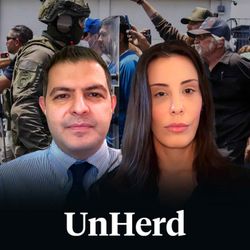
The ICE debate: Sohrab Ahmari vs Jenin Younes
53:55|Freddie Sayers debates the killing of Renee Good by ICE Agent Jonathan Ross in Minneapolis with civil liberties attorney Jenin Younes and UnHerd’s US editor Sohrab Ahmari, examining the incident through the lens of the "Rashomon effect" where observers draw diametrically opposite conclusions from the same evidence. Was the shooting a catastrophic violation of civil liberties and potentially an illegal execution, or does the responsibility lie with Good for obstructing a lawful federal operation and “weaponising" her vehicle, a view echoed by the Trump administration's branding of the event as an act of domestic terrorism. The discussion concludes with YouGov’s David Montgomery, who reveals how the broader American public view the use of force, and what significant long-term political risks the incident may yield for the Republican project.
Why Trump will get Greenland
43:41|UnHerd’s Freddie Sayers speaks with author and Cambridge professor Helen Thompson, economist Pippa Malmgren, and Danish MEP Henrik Dahl about the Trump administration's escalating rhetoric and strategic moves to acquire Greenland. Covering the historical legal underpinnings of Danish sovereignty while analysing modern geopolitical drivers such as the Monroe Doctrine, Arctic militarisation, and the essential role of the region in a new space race for strategic security dominance, they explore how the Greenland situation is symptomatic of a profound breakdown in trust between Washington and Western Europe, with the administration increasingly viewing European leadership as obstructive political rivals in a shifting global order.